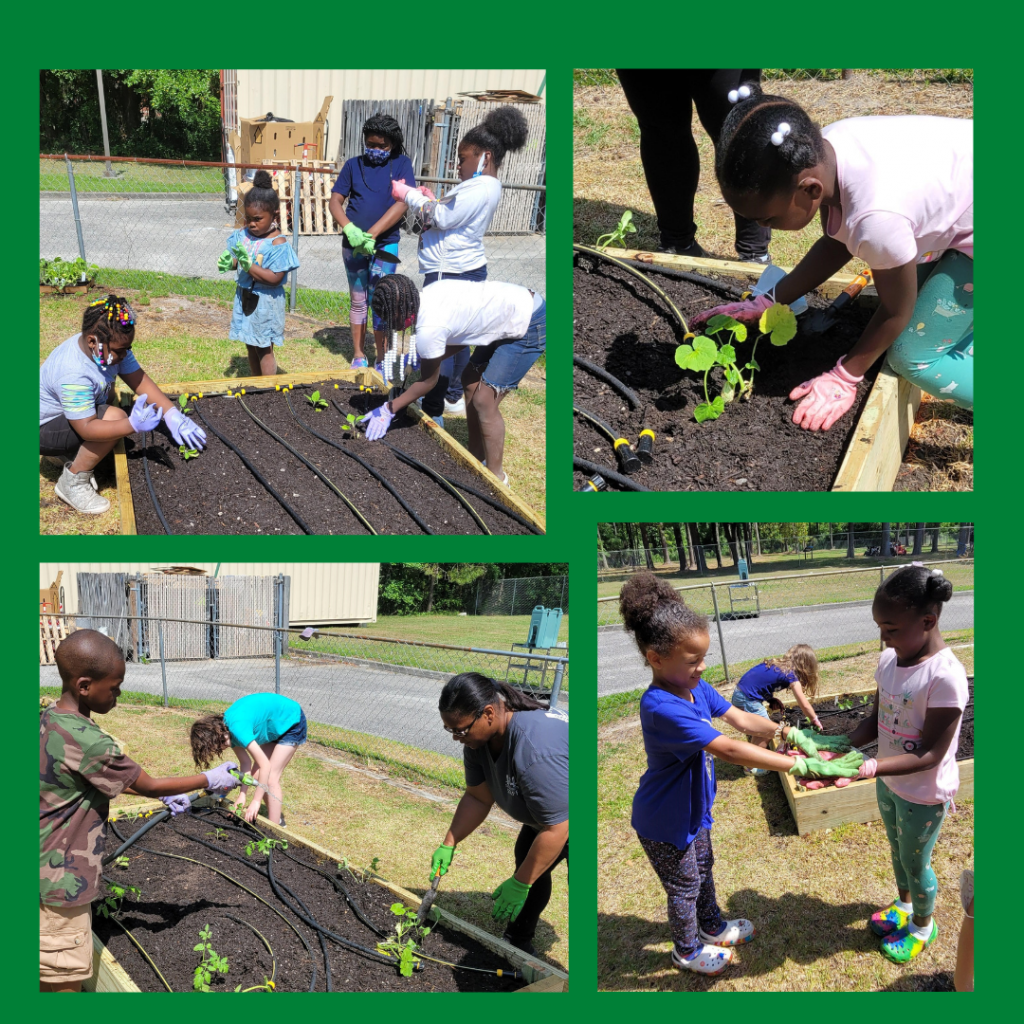Farm to Early Care and Education (F2ECE) enhances the health and education of young children through the development of policies, processes, and experiential learning practices that connect children and their families to local food and farms. F2ECE includes all types of child care environments that incorporate local foods through meals and snacks, taste tests, lessons, farmer visits, cooking, growing food, and/or community and parent involvement.
Since 2017, Smart Start of NHC has partnered with The Center for Environmental Farming Systems (CEFS) of NC State on the NC F2ECE collaborative. Over a dozen early care programs in New Hanover County participate and benefit from having gardens for the young children to tend and harvest vegetables, implement a healthy eating curriculum in the preschool classroom, network with farmers and community partners, and engage families to provide vegetables at home and learn about local resources to help provide healthy food.
We’ve tapped into many community resources to make this collaborative come alive!
- The local agriculture extension agency’s agriculture agent has provided his expertise with irrigation and growing vegetables.
- We have two food hubs in the county who have been able to provide pop-up markets at our early care programs for families to purchase local foods to have at home, as well as providing Snack Packs containing healthy snacks to children in classrooms.
- Our community gardener has been on our collaborative team since the beginning and loves to share is passion with young children and creating spaces for children to learn about vegetables
- Grants have helped supplement our Smart Start program funding in purchasing materials and tools for garden builds. Our local garden club and area businesses are happy to enhance quality child care and see the need to bring health foods to the table.
- Our local high schools, community college, and university are encouraging students to volunteer; we’ve been able to use their help in weekend garden builds. Additionally, ‘Crop Mobs’ and our local Cooperative Extension Master Gardener volunteers are happy to share their gardening knowledge and expertise to our early care programs and consult with the Smart Start Child Care Health consultant.
- Several businesses have donated materials including plants, seeds, tools, and curriculum guides from USDA.
Each early care program participates in their own way. However, they all set goals using the NC Go NAPSACC assessment tool. A few goals set by programs have been
- Changing menus to incorporate healthy meals and snacks by purchasing more fruits and vegetables from food distribution companies
- Field trips to local farmer’s markets for children to purchase fruits and vegetables for taste tests
- Updating program policies to include better guidelines for healthier snacks and meals brought from home
- Providing professional development to staff about healthy eating and nutrition
- Utilizing curriculum around healthy eating and nutrition such as Grow It, Try It, Like It or Color Me Healthy
Any type of early care program can enhance their program in small or large ways.
- Family child care homes whose backyards may not offer large spaces might set up containers with smaller plants.
- Large for-profit centers might have the ability to leverage funds to add several garden beds- enough to harvest food for snacks and meals.
- Any program can increase family engagement by asking for volunteers to tend the gardens.
Check out one of the many success stories from F2ECE! Kiddie Academy of Wilmington shares how they implemented F2ECE into their everyday practices and center policies, including access to healthy food in their center.
To learn more, check out our blog and poster as part of the Child & Nature Network Inside Out International Conference.
Contact LaKeasha Glaspie to learn more about nutrition, healthy eating, gardening, and how to incorporate these into your child care program.
